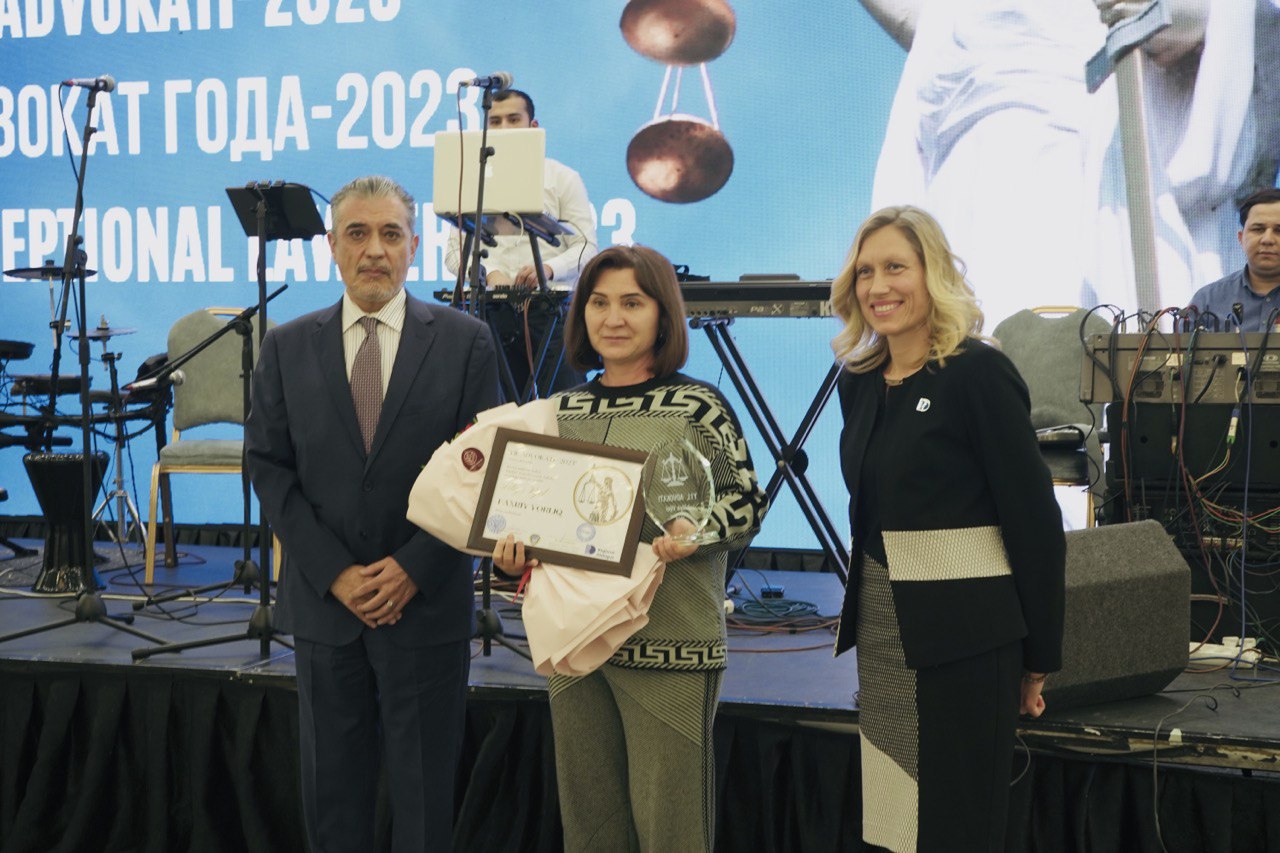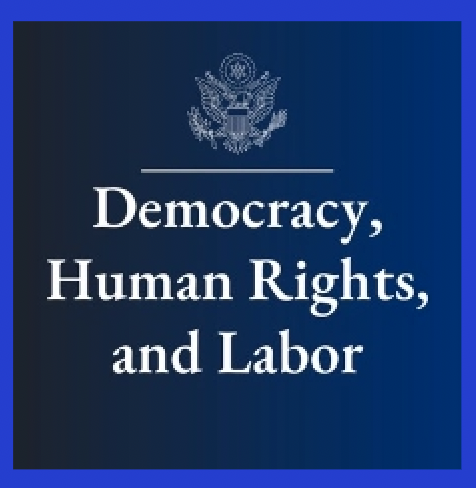Information about Sanjar Ahmedjanovich Yakubov and why this award was named after him.
Sanjar Ahmedjanovich Yakubov was an honored defense lawyer of the Republic of Uzbekistan, a candidate of legal sciences and a great lawyer who opened a new page in the history of jurisprudence in Uzbekistan. Over the 91 years of his life, he left behind several generations of talented lawyers, becoming a hero of our time and the pride of the legal profession in Uzbekistan. Until the last days of his life Sanjar Ahmedjanovich showed how to be loyal to his country, how to overcome the difficulties that arise in professional activity, and how to protect the rights and interests of those to whom his fate is entrusted. Presence of Sanjar Ahmedjanovich was a great happiness, achievement, and reward for the institute of advocacy.
Especially during the formation of Uzbekistan Yakubov was always present at the right time and in the right place. At a time when it was necessary to quickly make very correct and clear decisions, to lay the foundations of the legal framework, Sanjar Ahmedjanovich took part in the development of the Constitution of the Republic of Uzbekistan, the Civil Procedure Code, the Economic Procedure Code, two laws “On the Authorized Person of the Oliy Majlis of the Republic of Uzbekistan for Human Rights (Ombudsman)”, as well as in the development of laws “On advocacy” and “On guarantees of advocacy activities and social protection of advocates”. He is also one of the lawyers who showed great zeal in acquitting the victims of the Cotton Case. The bright memory of Sanjar Yakubov left a mark in the heart of each representative of the legal profession. His achievements will always be highly valued by his colleagues and students, and his contributions will forever be remembered in history.
As a sign of respect and recognition of the distinguished contribution of Sanjar Ahmedjanovich to the development of the institution of advocacy in Uzbekistan, the organizers of the “Exceptional lawyer-2023” competition decided to name the award for professional excellence after Sanjar Yakubov.

Lilia Vijel has been practicing law since 1996. During her 27-year career as a defense lawyer, Vijel has achieved acquittals for her clients in several cases, trained a number of interns who are now successfully practicing as defense lawyers, and continues to defend human rights.
You became the winner of the “Exceptional Lawyer” competition and received the Sanjar Yakubov Award for Professional Excellence. Why do you think you were chosen as the winner?
Winning the Sanjar Yakubov Award for Professional Excellence was a complete surprise for me. To be honest, I thought that the winner would simply get a certificate and that’s it, and when they called my name to the stage to receive award, at first I was very confused.
There are so many highly qualified lawyers in Uzbekistan, and the fact that the commission decided to single me out and award me from among them is a great honor for me, and in the future, I will certainly try to justify this honor, the award presented by I. Yakubov, the son of Sanjar Ahmedjanovich Yakubov who is the most legendary lawyer in the Republic of Uzbekistan.
Advocacy is my life, providing legal assistance to citizens and legal entities is my favorite job. At the awards ceremony, a short list of my achievements was announced, including the number of acquittals I achieved and legal interns I had. Every acquittal is more than one year of hard, painstaking work. Every rehabilitation is a triumph of the Rule of Law, not just my victory. When choosing the winner, I think the commission of the competition took into account these factors, as well as my 27 years of experience as a defense lawyer.
As a lawyer, I have one goal - to continue providing qualified legal assistance, to help people who find themselves in difficult life situations, to pass on my experience and skills to novice lawyers, and to make even more efforts to make proposals for changes in legislation.
I learned about the “Exceptional Lawyer” competition from the telegram channel of the territorial department of the Chamber of Advocates of Tashkent city. Through the Advokat magazine, I have been monitoring the results of this annual competition, but I never applied. I decided to apply this year because I think I have achievements that I consider to be exceptional.
Why did you decide to become a lawyer? Why do you do your work, what motivates you?
This was my childhood dream, and from about the 8th grade I began to intensively prepare for admission to the Tashkent State University, Faculty of Law. To be a defender, to help people, even in their hopeless situation, to help families return their loved ones from places of imprisonment, to restore justice and legality, and to make the world a better place.
This job is my favorite thing to do. I think being a lawyer is a calling and very often I compare the work of a lawyer to a work of a doctor. After all, correct diagnosis and correct actions, and most importantly in time, lead to a resolution of the situation (as in the case of a doctor, to a cure). I don’t need motivation, I just need to do my job correctly, honestly and skillfully. Of course, I feel joy when the long-term acute issue of my client gets resolved. But I don't do my job for the gratitude.
I aspire to enhance the safeguarding of citizens' rights and interests by advocating for legislative improvements. It's crucial that governmental agencies refrain from violating individuals' rights and instead adhere to the existing mechanisms and norms of the law. My goal is to foster a shift away from bureaucratic approaches and ensure that officials fulfill their duties responsibly and directly.
Taking this opportunity, I would like to point out a very important gap in the legislation on the judicial protection of the rights of convicted persons with the participation of a lawyer. The Criminal Executive Code of the Republic of Uzbekistan does not describe the procedure for imposing disciplinary sanctions by the management of correctional institutions, the participation of a lawyer in this procedure, and the procedure for appealing such actions to the administration of the colony, though such sanctions lead to the deterioration of conditions of detention (punishment cells), to the impossibility of applying parole or replacement of punishment with a more lenient one, changing the conditions of detention (transfer to a colony settlement), and replacing punishment not related to imprisonment with imprisonment. It turns out that the rights of the convicted have completely gone out of the window and the convicted are almost completely at the mercy of the Department of Corrections and the special prosecutor. I think that this issue requires mandatory legal elaboration, the adoption of laws in accordance with international standards and their mandatory implementation.
What are you most proud of? Which of the cases you carried out as part of your legal practice do you consider the most significant?
Every case is significant to one degree or another. It is important to me that law and justice prevail in every case. I get disappointed by the lack of interest and courage among lawyers to defend their opinions before various law enforcement or judicial structures.
How do you assess the development and state of the legal profession over the past few years?
It is in recent years that the legal profession has become more significant and the words “why do you need a lawyer, he doesn’t solve anything” are heard less from people. Now more citizens simply seek advice before holding events that are important to them in order to do everything in accordance with the law. In the very structure of the legal profession, one can see a focus on protecting the rights and interests of lawyers. Of course, everything here depends on the head of the territorial administration. I am very grateful to the head of the Tashkent City Territorial Department of the Chamber of Advocates, M. Rakhimov, who stood by the defense of 3 female defense lawyers in a criminal trial who, together with other highly qualified lawyers of Tashkent city, were able to prove in court the groundlessness of the charges and the court rehabilitated our lawyers. Working groups were created with the participation of prominent lawyers to introduce projects to amend the Constitution and legislative acts, a lot of work was done in the field of the recognition of international standards and the “Miranda Rules” in the Criminal Procedure Code. The status of advocacy and the rights of lawyers were reflected in the Constitution. A lot of work is being done to improve the skills of lawyers, various seminars and trainings are held, about which all lawyers are notified via the Telegram channel, and anyone can take part. And much more, even simple congratulations and good wishes on the birthday are very pleasant for any lawyer.
What are the main problems, in your opinion, facing the domestic legal profession today, and what are the ways to resolve them?
There are many problems, I will not go into depth. I will only mention one issue: improving the qualifications of each lawyer. After all, only knowledge and the ability to apply it can raise the authority of the Bar as a whole.
What is the most difficult part of your job?
Realize and accept powerlessness in the impossibility to further protect human rights. This is not always due to unqualified assistance from a lawyer, it may be because of imperfect laws and regulations, a simple lapse of the statute of limitations or the reluctance of certain structures to properly comply with the law.
How do you think your work impacts society?
This question is probably not for me; this should be a question for my clients, ordinary people, and the circle of people I come into contact with in my work.
What would you do to make the legal profession more attractive to young people?
I wouldn't do it, I have already done it. Under an international grant, I accepted, free of charge, law school graduates or those who had previously graduated from them who would like to become lawyers and were looking for a mentor and a financial support to obtain the necessary experience and internships. I trained at least 9 such young people. 5 of them became lawyers and are successfully practicing. But the main thing is not only to give them the opportunity to gain experience and undergo internships, but also, after receiving a license, to support them in their work and help them to become lawyers. To do this, at the beginning of their professional activities, I sent them my clients and advised them. And thus, a wider circle of citizens learned about my students. They began attracting more clients of their own and switched to the “independent rails” of the legal profession.
What advice could you give to our readers for becoming a lawyer?
My advice would be - study, extrac maximum knowledge from teachers, and engage in independent work to enhance legal understanding. All this will be useful in the very noble work of a lawyer. I advocate for law schools to integrate advocacy into student internships, allowing students to gain firsthand experience in the role of a defense lawyer.





